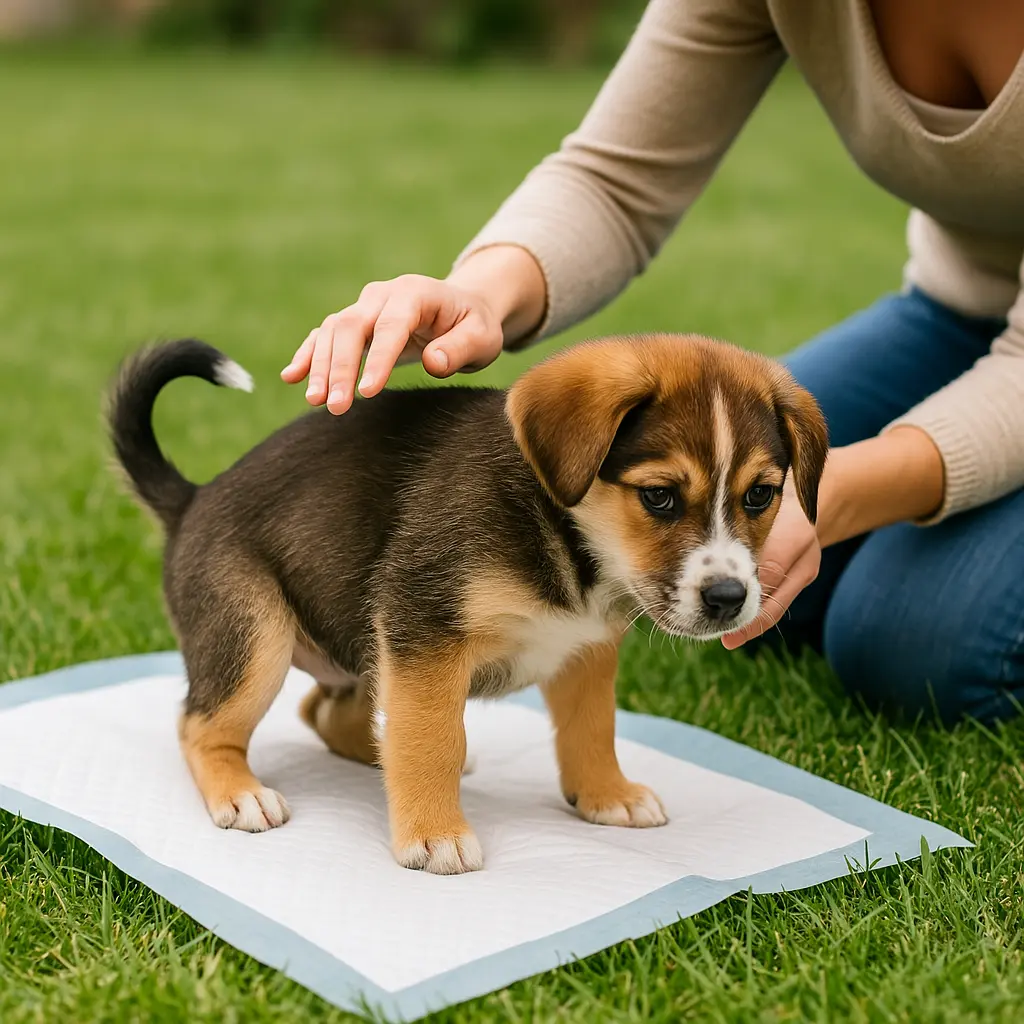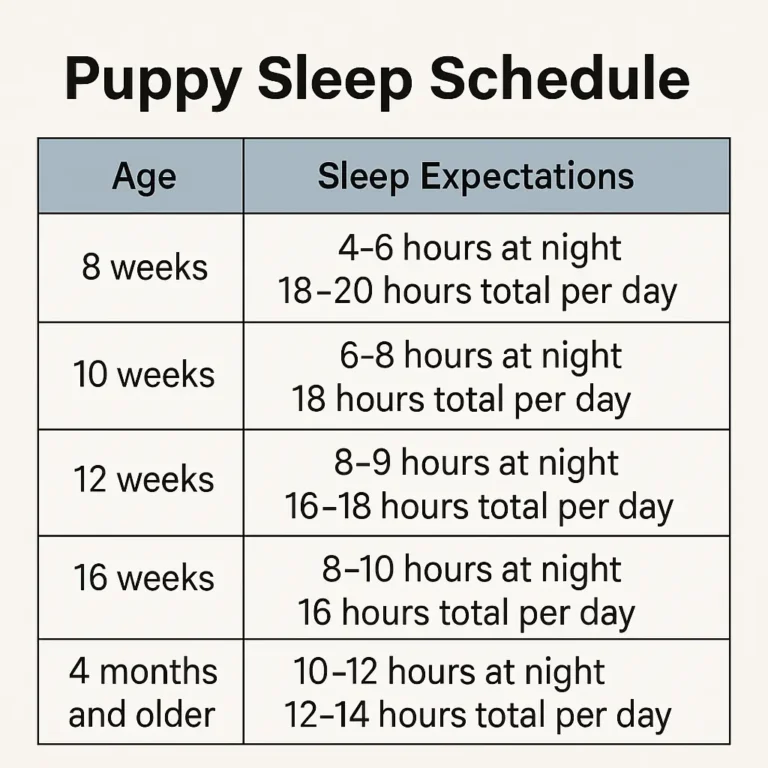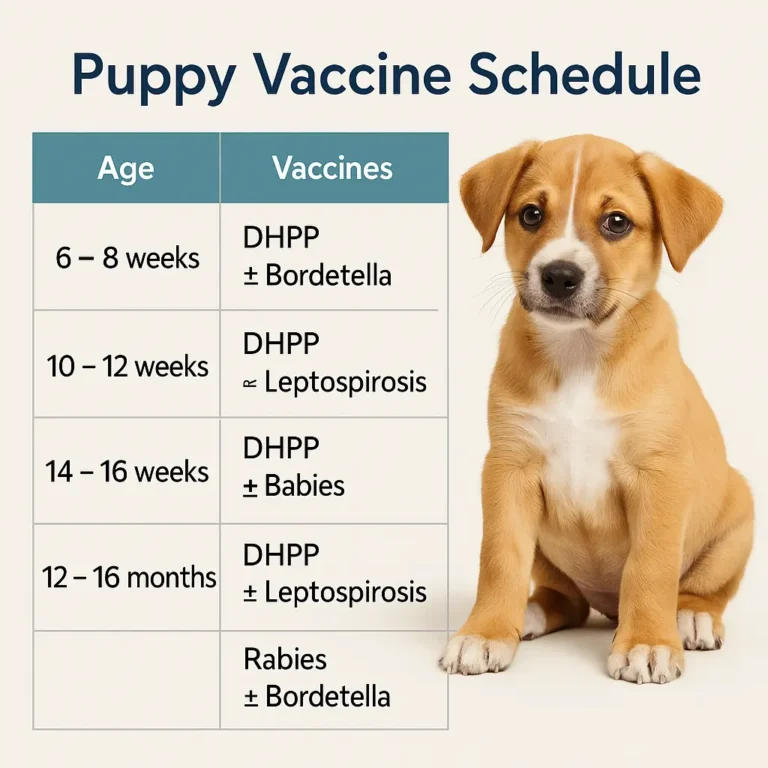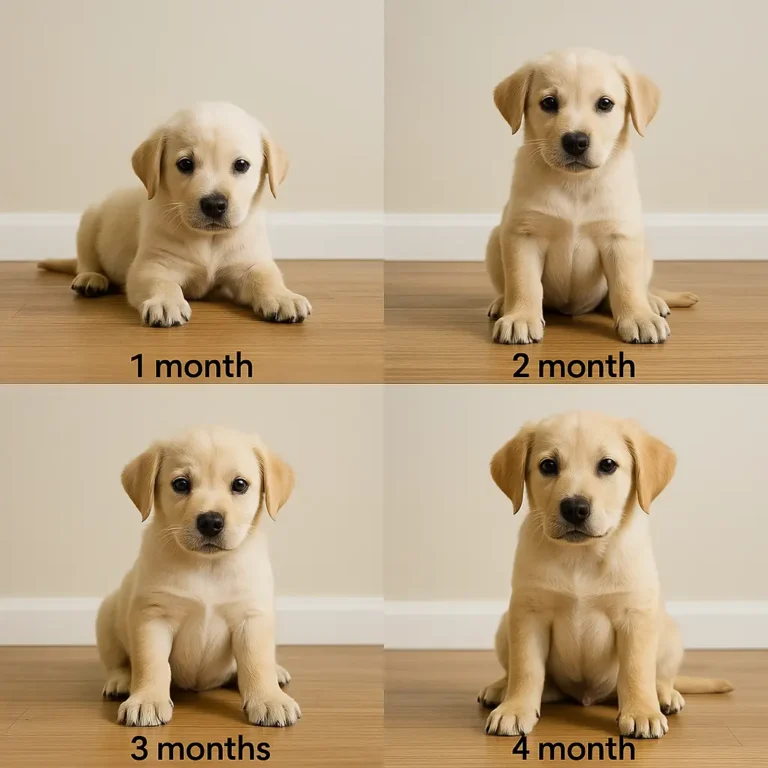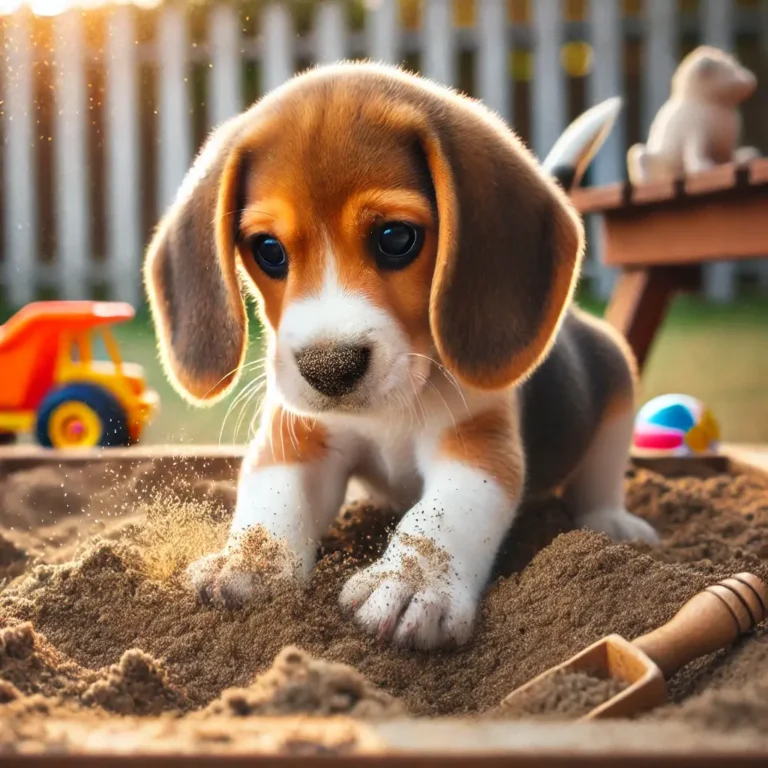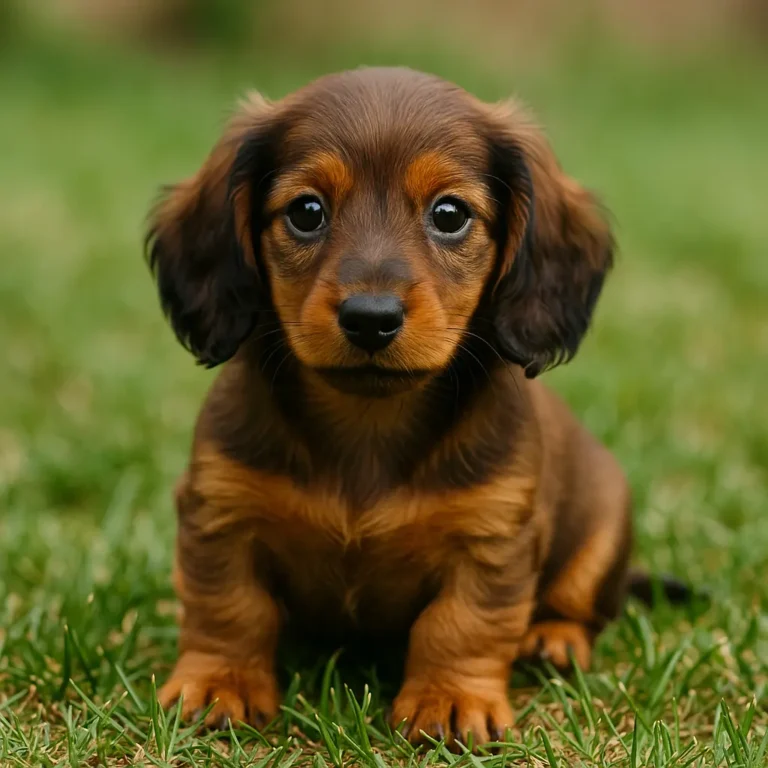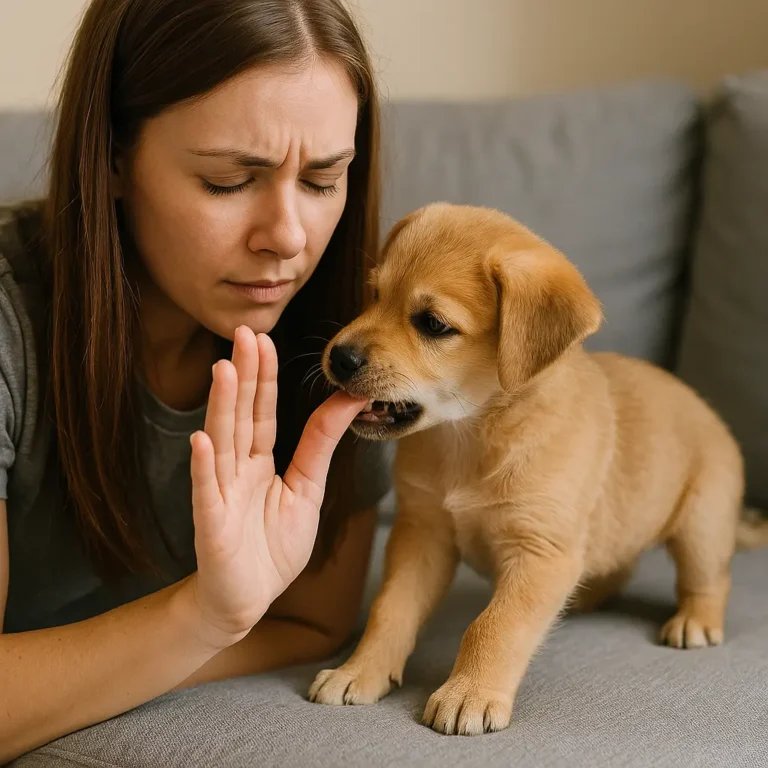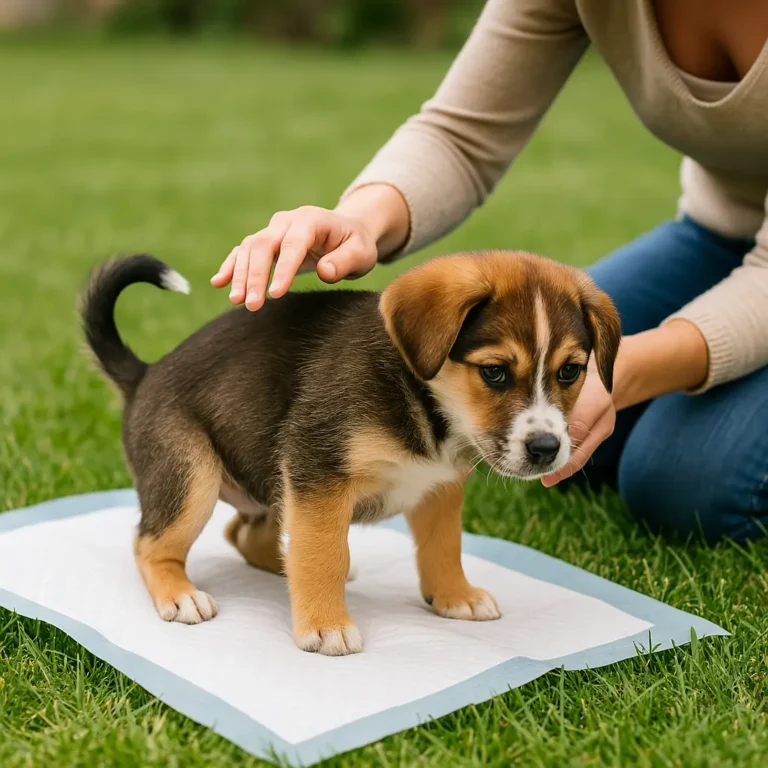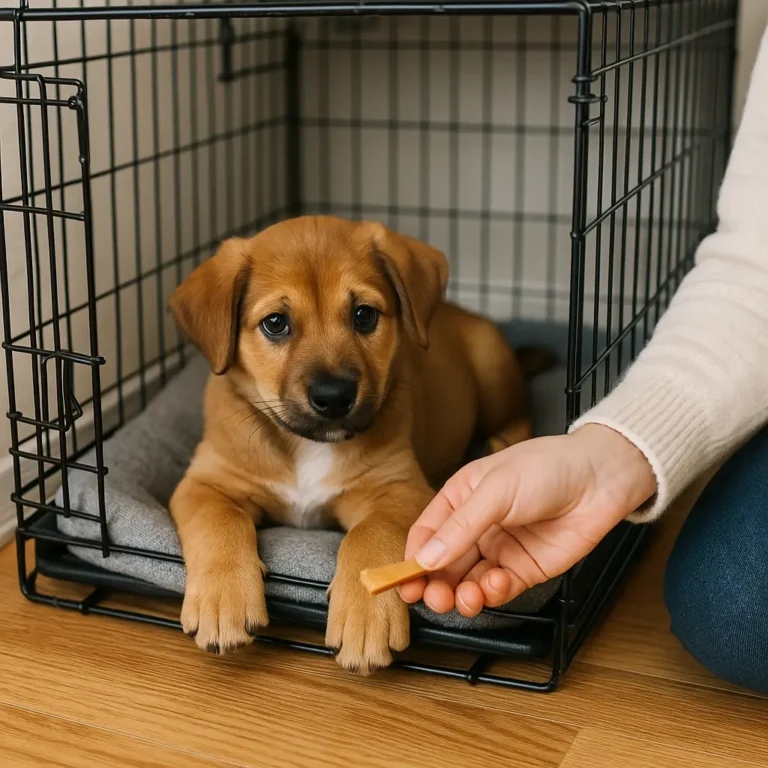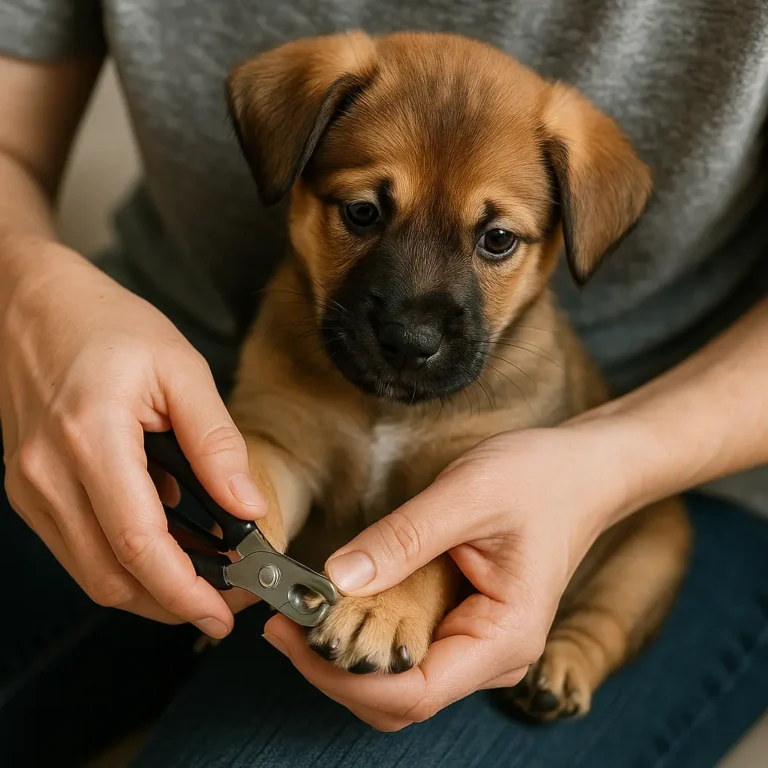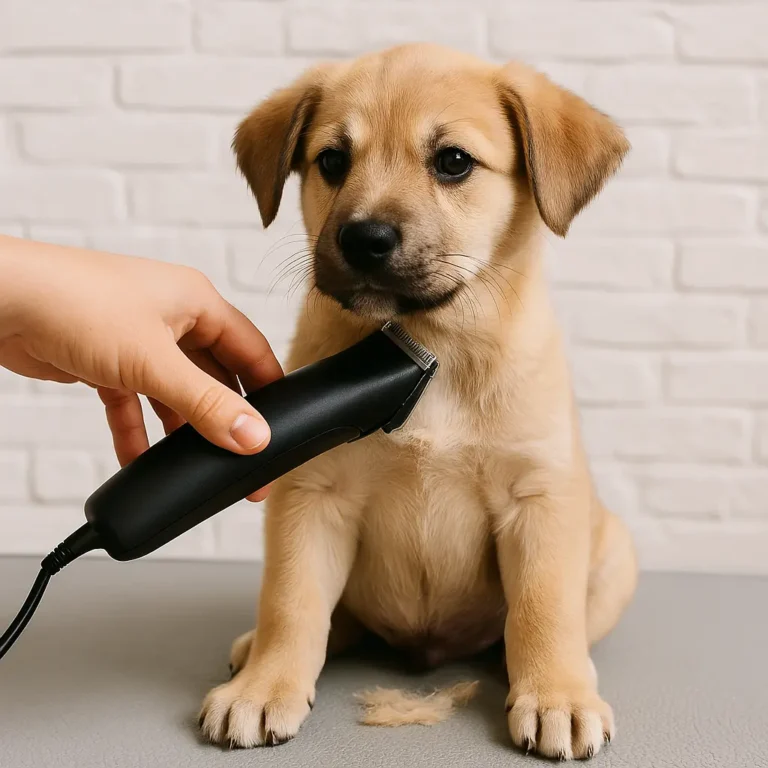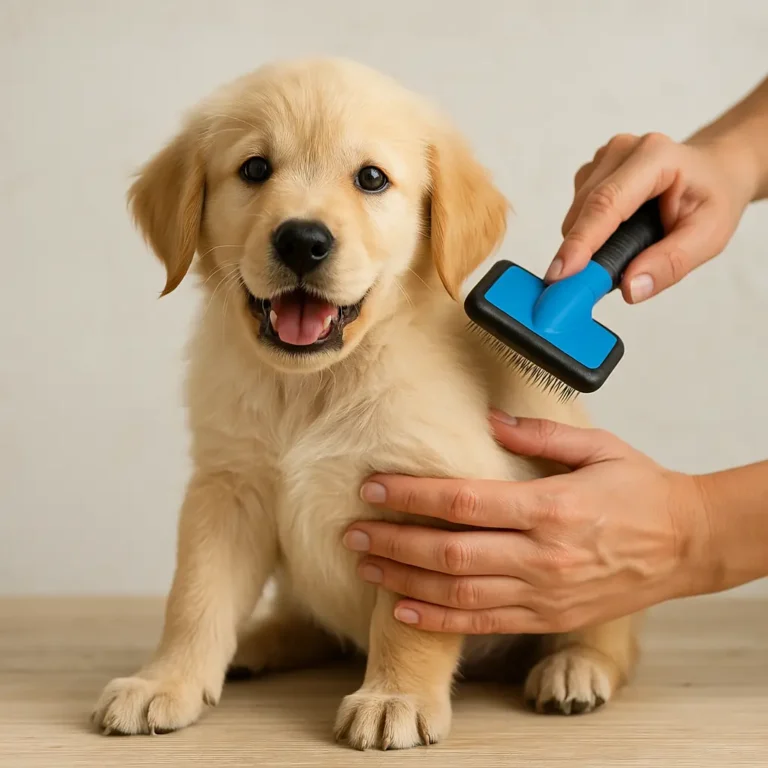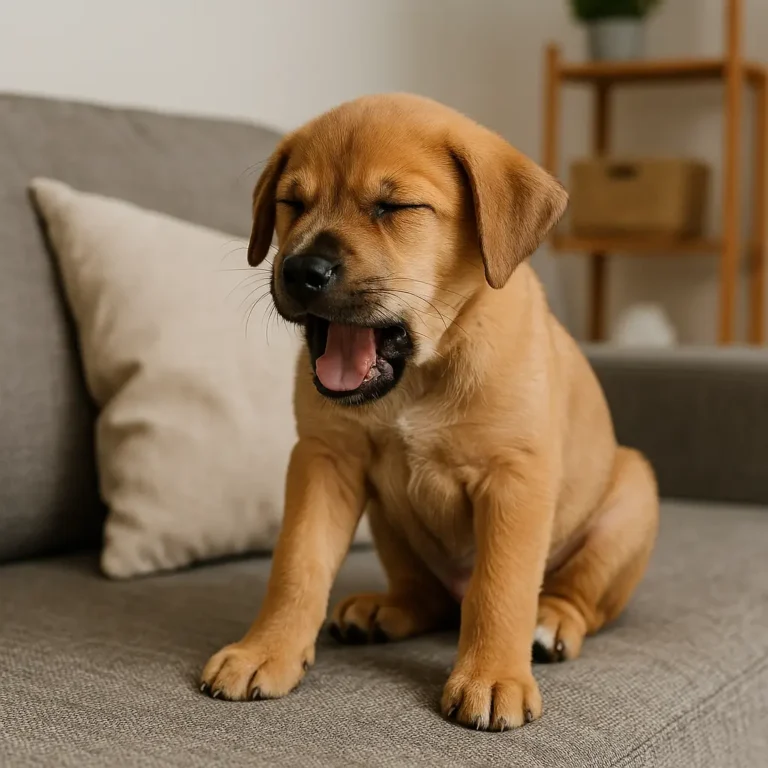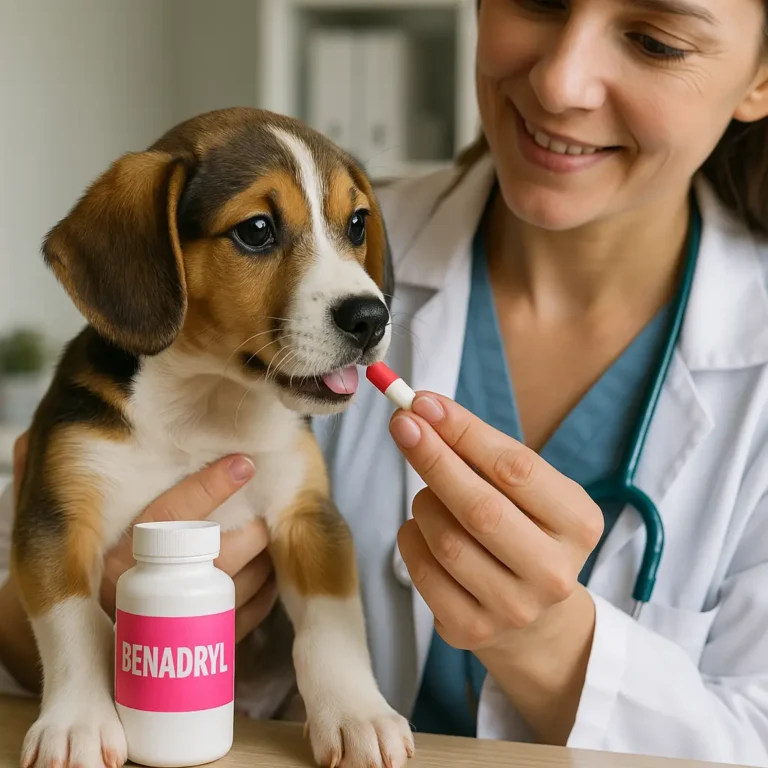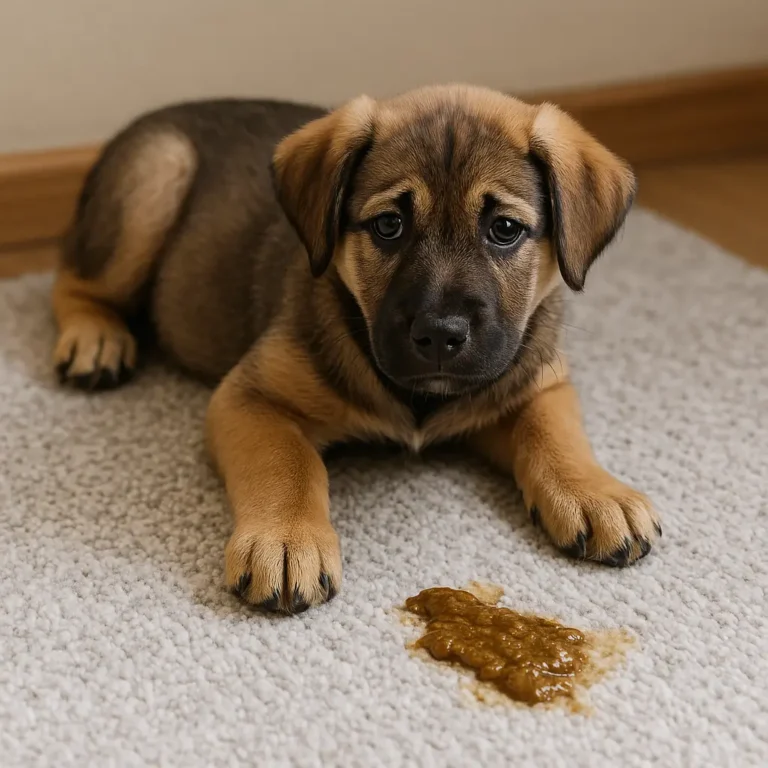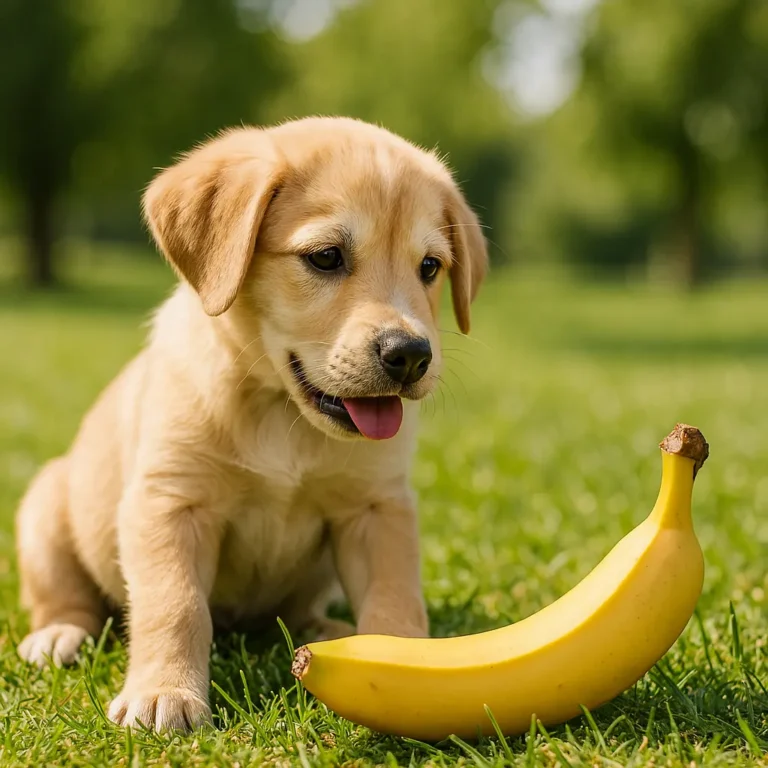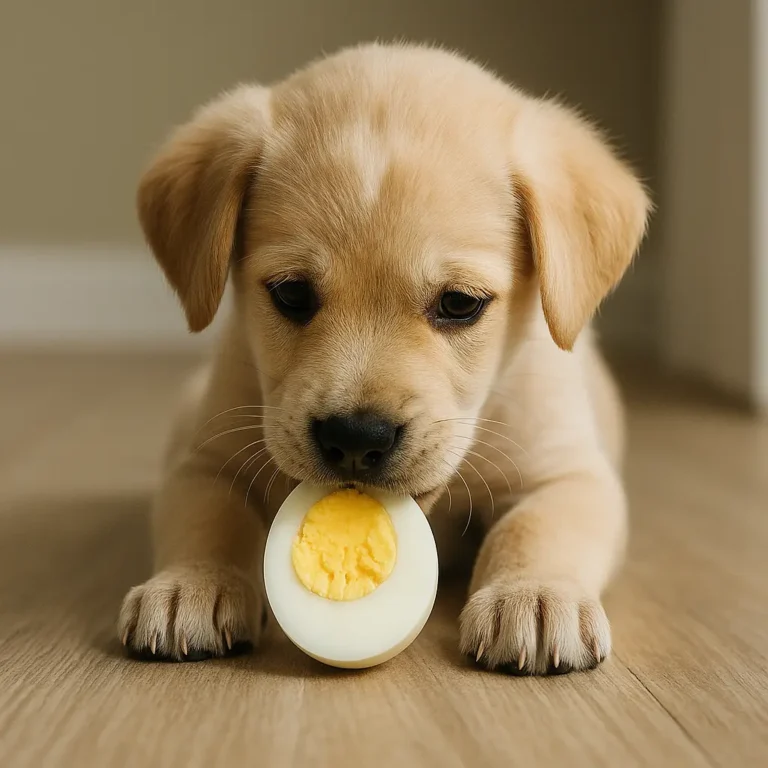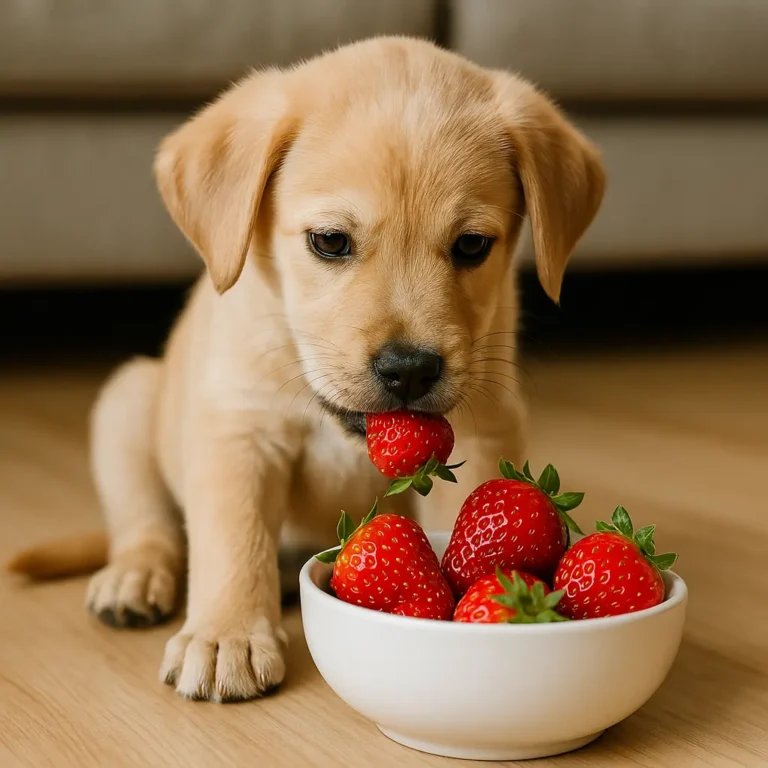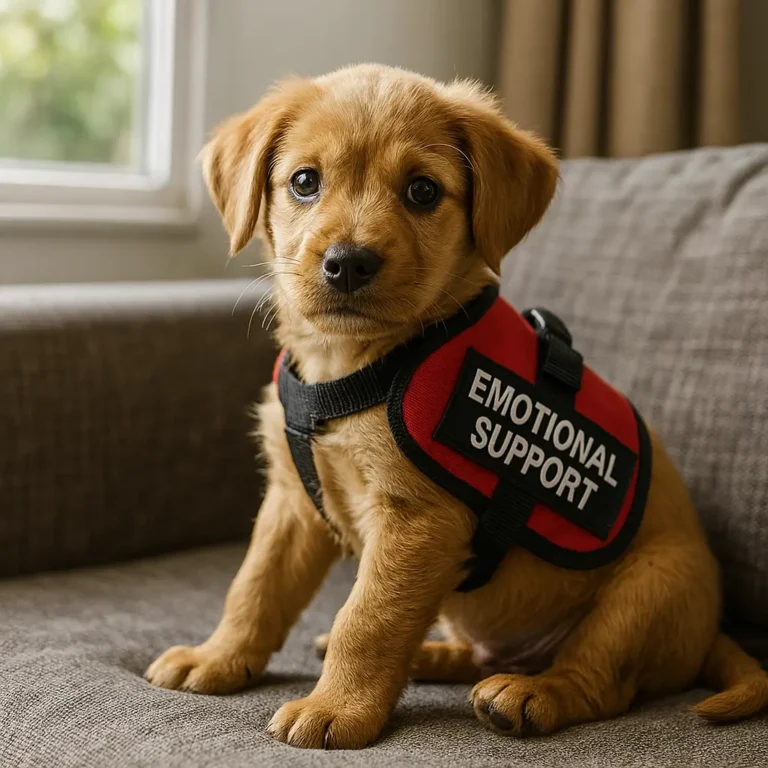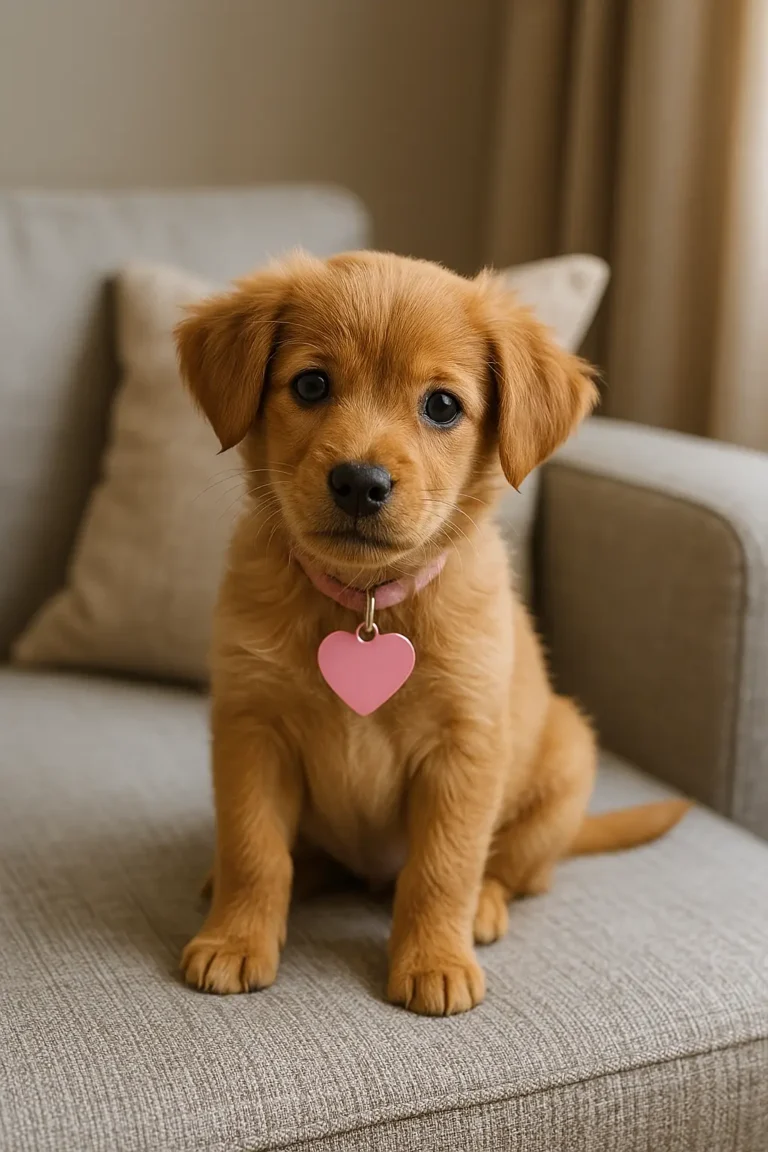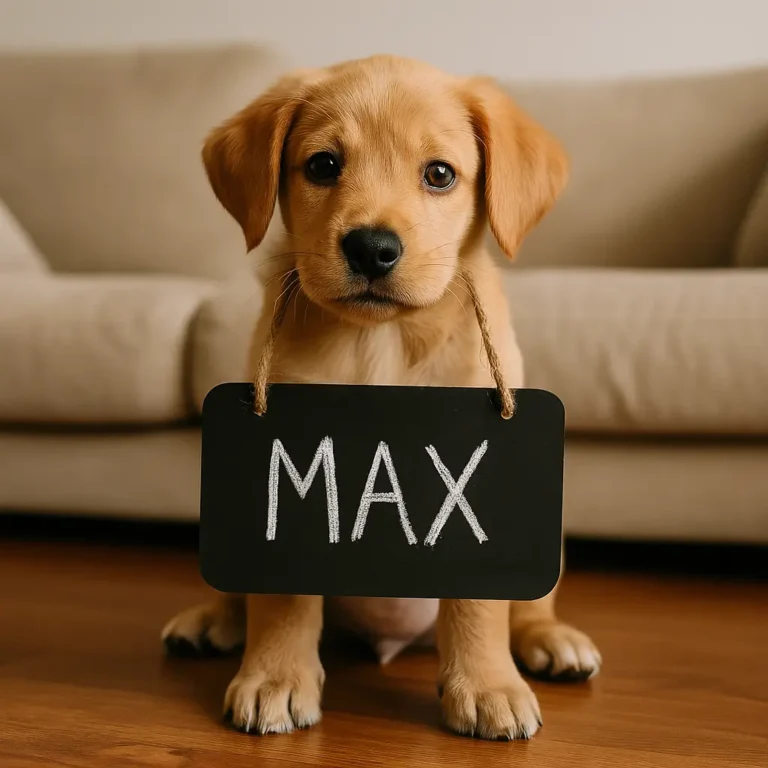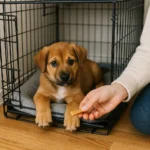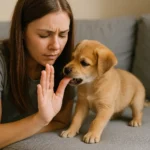Potty training a puppy can be messy—but it doesn’t have to be stressful. With patience, routine, and positive reinforcement, you’ll have a clean, house-trained pup in no time. Whether you’re wondering how to potty train a puppy quickly or struggling with accidents on the rug, this guide is packed with actionable tips to help. From schedules and praise to dog breed-specific challenges, we’re breaking down everything you need to know. Ready to tackle puppy potty training the right way? Let’s go from poop chaos to clean carpets—one potty break at a time.
🧼 10 Pro Tips for Potty Training Puppies That Actually Work
Successful puppy potty training starts with a game plan. Here are 10 expert tips to get your puppy house-trained fast:
-
Stick to a schedule – Take your puppy out every 1–2 hours and after eating, playing, or napping.
-
Choose a potty spot – Consistency helps build routine.
-
Use a cue word – Say “go potty” so they learn the command.
-
Reward instantly – Praise and treat within seconds of a successful potty.
-
Supervise constantly – Keep your puppy in sight or use a crate when you can’t watch.
-
Watch for signs – Sniffing, circling, or whining = time to go.
-
Crate train – Dogs avoid soiling where they sleep.
-
Clean accidents thoroughly – Use enzymatic cleaners to prevent remarking.
-
Don’t punish – Yelling or scolding only confuses your puppy.
-
Be patient – Accidents happen. Celebrate progress!
These tips work whether you're house training a puppy for the first time or fixing old habits.
With these methods, you’ll build consistency, reduce accidents, and boost confidence—for both of you. Mastering how to potty train puppies is easier when you stay calm, stick to a routine, and celebrate the wins!
❌ 5 Things You Should Never Do When Potty Training a Puppy
Even with the best intentions, some common mistakes can set back your puppy potty training progress. Here’s what not to do:
1. Don’t punish accidents
Yelling, rubbing their nose in it, or scolding only teaches fear—not where to go. Puppies don’t connect past actions with present punishment.
2. Don’t skip supervision
If your puppy roams unsupervised, accidents are bound to happen. Keep eyes on them or use a crate/playpen when you’re busy.
3. Don’t expect perfection too soon
Potty training a puppy is a process. Even fast learners have accidents during growth spurts or stressful transitions.
4. Don’t use the wrong cleaners
Avoid ammonia-based products. They smell like urine and may encourage marking. Use enzymatic cleaners to fully remove scent.
5. Don’t ignore your dog’s signals
Whining, pacing, or sniffing are signs. Miss them, and you’ll miss the chance to prevent an accident.
Learning how to potty train a puppy includes avoiding these pitfalls. Focus on encouragement and consistency instead of frustration.
A clean house is great—but a confident, well-trained pup is even better. Mistakes are part of the journey. It’s your response that determines long-term success.
Some breeds just take longer to house-train than others. If you’re struggling with potty training puppies, breed tendencies might be to blame.
Breeds that often need extra time include:
Dachshunds – Stubborn and tiny bladders
Chihuahuas – Easily chilled, reluctant to go outside
Basset Hounds – Laid-back but slow learners
Afghan Hounds – Independent, not eager to please
Pekingese – Sensitive and resistant to change
If you own one of these, don’t worry. With structure, reward-based training, and patience, every dog can succeed. House training a puppy just takes longer for some breeds.
⏱️ How Long Does It Take to Potty Train a Puppy? Let’s Be Real
There’s no one-size-fits-all answer to how long it takes to potty train a puppy, but most dogs get the hang of it within 4 to 6 months.
Factors that influence timing include:
-
Age – Puppies under 12 weeks may not have full bladder control.
-
Breed – Small dogs take longer due to tiny bladders.
-
Consistency – Daily routines = faster results.
-
Past habits – Rescue pups may need to unlearn bad patterns.
With consistent effort, many pups show real progress in just 1–2 weeks. But occasional accidents can still happen—even after months.
The most critical period is between 8 and 16 weeks. That’s when habits form fastest. Stick to a structured routine and celebrate every successful potty trip.
Also remember: nighttime potty training may take longer. Puppies can’t hold it as long while sleeping, especially at 8–10 weeks.
If you’re asking, “How to potty train puppies quickly?”, the answer is clear: routine + rewards = success.
Some dogs will click in days; others take months. Stay calm, be consistent, and you’ll get there.
Grooming Tips
📆 Create a Foolproof Housetraining Schedule for Your Puppy
The secret to successful house training a puppy? A strict, easy-to-follow schedule. Here's a sample daily plan that works for most breeds:
Morning
-
Take out first thing after waking
-
Feed breakfast, then potty again 10–15 minutes later
Daytime
-
Potty every 1–2 hours
-
Take outside after every nap, play session, or snack
-
Offer consistent meal times
Evening
-
Dinner at least 3 hours before bedtime
-
Final potty trip right before lights out
Crate time
Use a crate during naps or when you can’t supervise. Dogs don’t like to soil their space, which helps build control.
Watch the signs
Whining, pacing, or sniffing are clear indicators it’s potty time.
Use a designated spot outdoors and say a consistent potty cue (“go potty”) every time.
Stick to the same times every day. Routines teach puppies faster than discipline ever could.
By following a set puppy potty training schedule, you’ll reduce accidents, build confidence, and form a lifelong habit of good behavior. Stay consistent, and your carpet will thank you.
Health Tips
🎉 How to Reward a Puppy for Successful Potty Training
Positive reinforcement is your most powerful tool in potty training a puppy. When your pup goes in the right place, make it a celebration!
Here’s how to reward effectively:
1. Timing is everything
Give praise or a treat immediately after your puppy potties. Delay more than 5 seconds and they may not connect the reward to the action.
2. Use high-value treats
Make it special—tiny soft bites of chicken, cheese, or liver treats work great.
3. Praise enthusiastically
Say “Good potty!” in a happy tone. Your energy helps reinforce the message.
4. Be consistent
Reward every single time during early training. Once the behavior is reliable, you can gradually reduce treats.
5. Add playtime as a bonus
Potty success = outside time or a quick game. It makes going potty the start of something fun.
How to potty train puppies faster? Reward the right actions without delay.
Puppies repeat what works. When pottying outdoors earns praise and goodies, they’ll be eager to do it again.
Make reward-based potty training fun, fast, and foolproof. You’re not just avoiding messes—you’re shaping behavior that lasts a lifetime.
FAQ
How often should I take my puppy out to potty?
Can I use pee pads for training?
When should I start potty training?
Why is my puppy regressing in potty training?
Do I need to wake up at night?
Should I punish accidents?
What if my puppy pees inside after being outside?
How do I stop indoor marking?
Life Tips
House Training a Puppy Takes Time—but It’s Totally Worth It
Learning how to potty train a puppy isn’t always easy, but the payoff is a well-behaved, confident dog—and a clean home. With patience, structure, and lots of praise, even the most accident-prone pup can master the art of house training. Avoid common mistakes, stick to your routine, and celebrate every success. Whether you’re deep into potty training puppies or just starting out, remember: consistency is everything. The accidents will fade—but your bond will grow. Bookmark this guide and refer to it whenever you're feeling stuck. You’ve got this, and your puppy is counting on you. What dog breed am I? Uncover your canine identity with our quiz!

